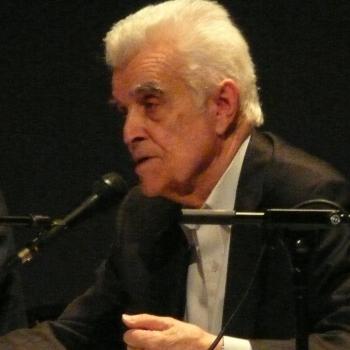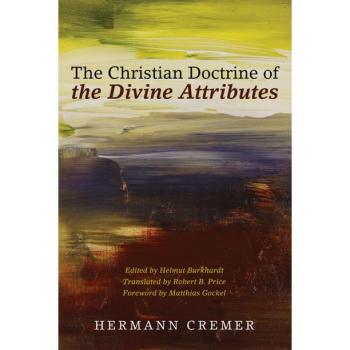A Modest Proposal for an Ideal Social Order
What a subject! And such a task! The enormity of it is overwhelming, so all I intend to do here is give a bare bones, that is skeletal, outline of what I regard as the ideal social order. It draws on what I understand to be the social principles of the Kingdom of God tempered by present realities. Thus, this vision assumes an “already but not yet” idea of the Kingdom. For example, I assume that in the Kingdom to come people will not need external incentives to invent, create and work for the common good. Here, under the conditions of sin, we do. However, I do not assume that everyone is totally depraved so that there is no altruism alive in people. And I assume the reality of common grace ameliorating the depravity of humanity and making some measure of civil righteousness possible in the secular order.
I assume that representative democracy is the best form of government with the state being accountable to the people through elected representatives and kept from absolute power by a set of checks and balances. I also assume that the ideal social order is constitutionally based with strong protections of civil rights such as we have in the Bill of Rights. I DON’T assume that our American form of government is necessarily the best possible. I think representative democracy can take several structural forms such as our three branches of government with one person, the chief executive, as head of government and head of state, or a parliamentary system with two separate persons as heads of state and government. A constitutional monarchy can also be an example of representative democracy. The Swiss Federation, the Republic of Switzerland, has a government that looks very little like that of the United States but is nevertheless a true democracy.
Where my vision of an ideal social order will probably become controversial, especially with many conservatives in the United States, is my belief in basic human rights beyond those explicitly stated in our Bill of Rights.
What is the basis of my vision of the ideal social order? Twofold: my understanding of the Kingdom of God (what life in it will look like because of Jesus Christ as its head) and the social contract theory of philosopher John Rawls.
Now, I know some folks will get off board immediately when I mention Rawls—especially some Christians who abhor his secular liberalism. I say we can plunder the Egyptians. That is, just because Rawls was a secular humanist (so far as I know) does not invalidate everything he said. In fact, I find some of his ideas (not his secular humanism or overall liberalism) to be something like what missiologist Don Richardson called “created analogies for the gospel” in cultures yet untouched by the gospel of Jesus Christ. Another way of putting it is Justin Martyr’s idea of the logos spermatikos—the “seed of the logos” in everyone. Yet another way of putting it is Clement of Alexandria’s maxim “all truth is God’s truth.”
Rawls (in A Theory of Justice) argued that justice is fairness and fairness is what most people would decide (as social policy) under the “veil of ignorance.” He asked readers to imagine an “original condition” (like a social convention prior to any actual social order) in which people have opportunity (and necessity, I assume) to decide on the rules under which they will live. In this original condition all the participants decide under the veil of ignorance. That is, they do not know what their actual “place” in society will be once the veil is lifted and the social order commences. They do not know, for example, whether they will be advantaged or disadvantaged. All they know is that there will be inequalities.
The question is: What would people decide about an ideal social order under the veil of ignorance? Well, who can know for sure? I don’t read Rawls as claiming he knows with certainty. But he put forth suggestions and argued for them. I happen to agree with him. He argues that most people under the veil of ignorance, not knowing their vested interests, would opt for an ideal society ruled by the “maximin principle.” (As a liberal Rawls also argues they would establish maximum individual freedom balanced by the maximin principle.) What is the maximin principles? It is the maximizing of the minimum.
First, Rawls assumes, and I agree, that people generally need incentives to invent, create and produce. Short of the Kingdom, people will not be at their most productive without the promise of the possibility of financial reward. Rawls also assumes, and I agree, that wealth (in the broadest sense, not just money) can be created. Without financial incentives, most people will not contribute to the creation of wealth which is important for the common good.
Second, however, Rawls assumes and I agree, that under the veil of ignorance people will want to protect themselves from destitution in case it turns out they are disadvantaged such that they are not in a position to reap the rewards of productivity.
So, third, Rawls argues, and I agree, under the veil of ignorance people will structure their ideal social order so that there are genuine possibilities for financial gain but combined with structures that will automatically raise the standard of living of the disadvantaged as the advantaged produce and prosper. Rawls rejected the idea that a rising tide automatically raises all the boats. And I agree. “Trickle down economics has not worked.” Since the “Reagan revolution” the rich have been getting richer and the poor have been getting poorer (in America).
Rawls was clearly seeking to justify redistribution of wealth and I agree that it is necessary. We cannot tolerate a social order in which the rich simply continue to become richer and the poor continue to get poorer and the middle class thins out.
However, what does “redistribution of wealth” mean? In my experience, too many people react to the term in knee jerk fashion assuming it means monetary hand outs to the undeserving poor (those who simply refuse to work for a living). That is not what I mean by it and I do not think that is what Rawls or most social liberals want.
I’m going to leave Rawls’ specific proposals behind now and offer my own proposals. I think what most people under the veil of ignorance would want for their ideal social order (out of self-interest if nothing else) is not a “welfare state” where people are rewarded for not working. What they would want, and create, is a social order in which everyone has opportunity to improve their standards of living, a social order in which work and credit are guaranteed, but not without qualifications.
The right to meaningful employment resulting in a living wage was part of the President Franklin Roosevelt’s “Second Bill of Rights” (1944). It is also part of modern Catholic social teaching. Some call it socialism. I won’t be deterred by labels. The right to meaningful employment with a living wage is, I believe, as much a basic human right as the right to free speech. It’s the next step in a truly enlightened progressive social order.
Redistribution of wealth, then, would not be “taking from the rich to give to the poor.” It would be taking from the advantaged to give opportunity to the disadvantaged, opportunity to participate in the economic life of the society (per the U.S. Catholic Bishops). Such is for the common good. Without it, eventually, a chronically underemployed class will develop which will result in revolution, violent or otherwise.
So how does this fit with the need for incentives? The jobs offered by the government would be minimal in terms of salaries or wages. People in those jobs would not be as prosperous as they would be working in the private sector. But neither would they be homeless or destitute. Part of their job situation would be training for work in the private sector and/or the offer of low interest loans to start their own businesses and get out of government employment.
This would totally replace “welfare” in any traditional sense. In other words, in this ideal social order, everyone capable of working would be required to work, if nothing else by picking up trash along roadways. If they have children not yet in school, the government would provide child care during the hours they work. They would be required to be seeking employment in the private sector. Anyone who simply refused to work would have their children taken away and put in foster care or humane institutions (with visitation rights). There would be no cash outlays other than temporary emergency assistance (in the form of vouchers) and disability income for the truly disabled.
The only way to make this work would be to have a sufficiently high minimum wage for the private sector to make employment there attractive.
So what about those median situations where persons are in the “working poor” category and need partial assistance such as food stamps? In my ideal social order that would be available but able bodied people receiving food stamps or any other form of government assistance would be required to do some kind of work to earn it. Work is humanizing; not working and receiving financial assistance (when one is able to work) is dehumanizing.
I truly believe this is what people would decide for their social order under the veil of ignorance. But some people ask “What is the value of this veil of ignorance if such an original situation never actually exists?” They don’t understand social contract theory. The point is to be able to argue to someone who proposes, supports or imposes a different social order “That is not what you would propose, support or impose under the veil of ignorance—if you did not know your vested interests and advantages or disadvantages.” It’s a critical principle for supporting certain social policies and opposing others as based solely on advantaged persons’ vested interests. In other words, it’s a form of reasoning.
I think such a social order is compatible with the gospel, with the Kingdom of God. It is at least more compatible with that than are other social orders. And it is realistic about humanity. It recognizes (as communism does not) that we are not yet in the Kingdom.
I also happen to think that people in the original condition, under the veil of ignorance, would create a social order with universal health care parallel with universal education. That is, open to all, funded by taxes, but not guaranteed to do everything possible. That is, free health care would sustain life and relieve pain but not provide elective surgeries (for example). People would be free to purchase supplemental health insurance for things like replacement of teeth (and crowns), reconstructive surgery, etc.
How would all this be funded? Well, for one thing, by spending less (than America does) on “guns” and more on “butter.” America’s “defense” budget is bloated. Reduce it by half and use the billions upon billions of dollars freed up to guarantee full employment. Much of the defense budget and spending is wasteful. Cut down on top level salaries and spending on high tech weapons that are not necessary to defend our own country. Gradually phase out much of the military (as we are in peace time or could be if we chose to be) and concentrate our national resources on human development.
I can, of course, anticipate objections from both social-political conservatives (“socialism!”) and Hauerwasian Christians. To the former I say, labels don’t scare me and I think the present order of things is simply inhumane (millions upon millions of homeless persons including children) and too far from anything even vaguely resembling the Kingdom of God for me to be comfortable with it. And my vision isn’t true socialism which, by definition, means public ownership of the means of production. To the latter I say that I don’t understand how it conflicts with authentic Christianity to propose and support social reforms. The reforms I here propose would take place by public choice through elections of representatives who support and enact them. I’m not advocating violent revolution. Nor am I advocating that Christians “take the reins of power” and use violent means to control or manage history.
Admittedly, what I have offered here is far from comprehensive. And, of course, “the devil is in the details.” But it seems to me every proposed social order arrangement has problems of implementation. It’s a matter of setting forth principles and then, through trial and error, making them work. We do it all the time. My proposal is simply that Christians and others who agree adopt this basic proposal and begin working together toward its implementation fixing problems as we go. The basic outline is similar, of course, to ones already implementing, in varying ways, in some northern European countries and Canada. I see no reason why the United States of America cannot learn from those social orders and move in their direction in our own way. Ours will be distinctly American just as theirs are distinctly Canadian and Scandinavian, etc.
Someone may ask what’s distinctly Christian about this proposal? Well, the motivation—Christian humanism (as I have described it here at least twice before) and our desire to approximate the humane community of the future Kingdom of God as much as possible within history. And, of course, our love for the disadvantaged and for the common well being of the human community because of the grace of God shown to us in Jesus Christ.
















